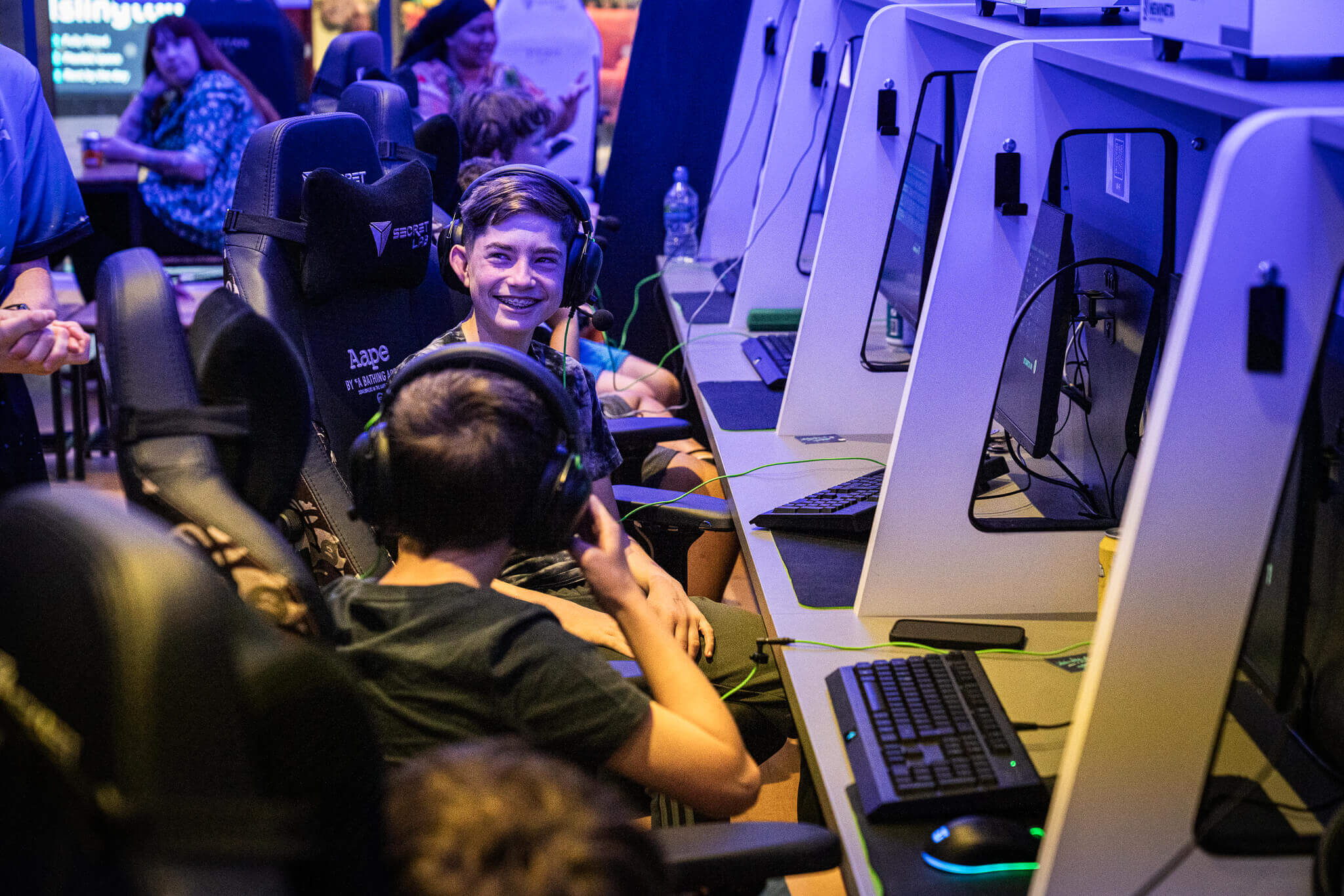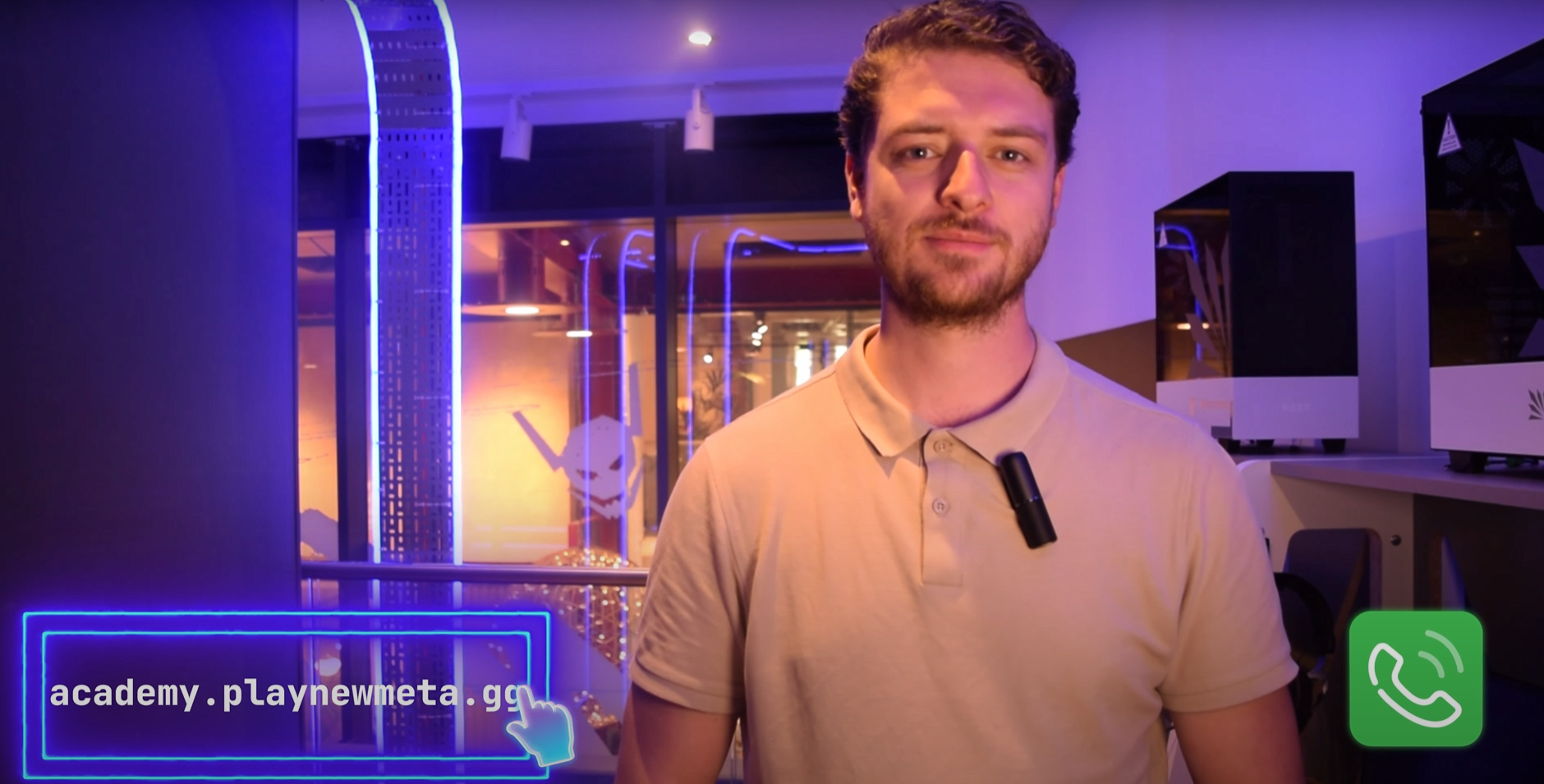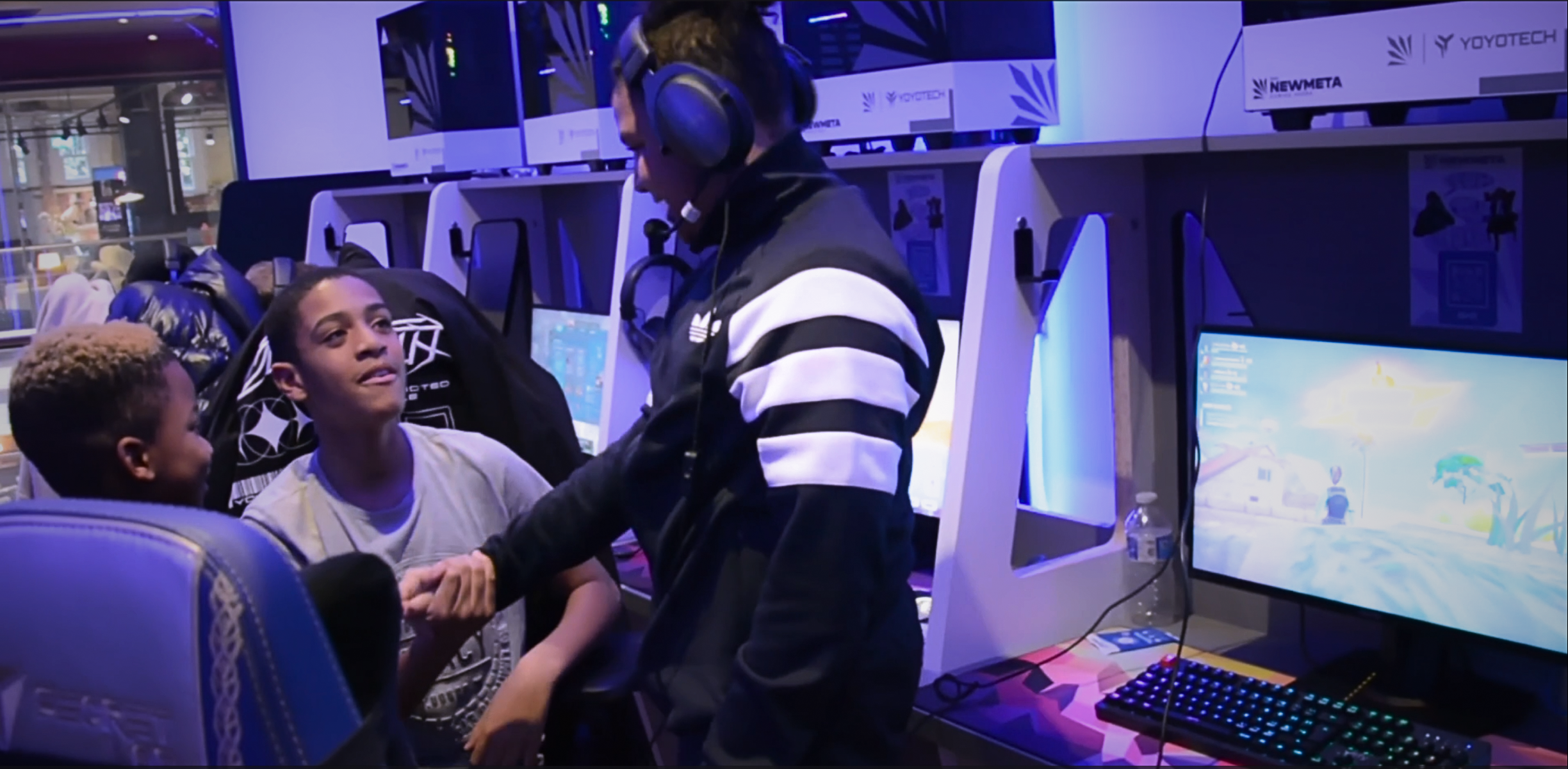Video games are a platform for individual enjoyment, competition, and social interaction. Many games are built on the foundation of teamwork, where each player’s role is crucial to achieving a common goal. This makes effective, efficient, and collaborative communication not just important, but essential.
However, the exhilaration and tension found within competitive games can begin to blur the lines between passionate exchange and toxicity. Curbing inappropriate online behaviour and damaging in-game conduct is a mission increasingly prioritised within the gaming and esports communities, and every individual plays a significant role.

Concerns surrounding in-game conduct are even more critical to address when children engage in competitive play. Understandably, parents would be particularly apprehensive about allowing their children to participate in these environments. The New Meta Academy appreciates these priorities, ensuring that effective and appropriate online communication is integrated into our competitive gaming-related classes.
For more information about online behaviour and the journey to positive in-game conduct, read through our rundown of what is being done within the gaming and esports communities and what you can do at home to create a safer online gaming environment.
The gaming industry’s journey towards toxicity management
Recent movements within the game design community have acknowledged and consolidated designers’ responsibility to guide and reinforce certain online behaviours. Conferences such as the GDC (Game Developers Conference) have held regular panels to discuss these responsibilities and how best to encourage responsible in-game interactions.
Community management roles have also gained increasing respect and importance within the gaming industry. Community Managers are employed to interact and establish online spaces for those playing a particular game to interact, exchange knowledge, and share their passion. Alongside this, Community Managers play a crucial role in helping to continue positive in-game relations and are often at the forefront of managing player concerns.
All video games involving in-game communication with others also feature report options. When players notice toxic or inappropriate behaviour, they can use in-game report functions to immediately relay the problematic interaction in question, which will then be reviewed. Toxic players can either have their accounts temporarily or permanently banned from the game.
Advertising healthy in-game interactions in esports
Competitive video game scenes such as Fortnite, League of Legends, and Apex Legends have also communicated publicly about the value of positive in-game interactions and behaviours. In 2023, Electronic Arts (publisher of Apex Legends and overseer of the Apex Legends Global Series) introduced their “Positive Player Award,” recognising professional gamers who’s attitude, performance, and support towards their teammates and wider community is exceptionally productive and constructive.
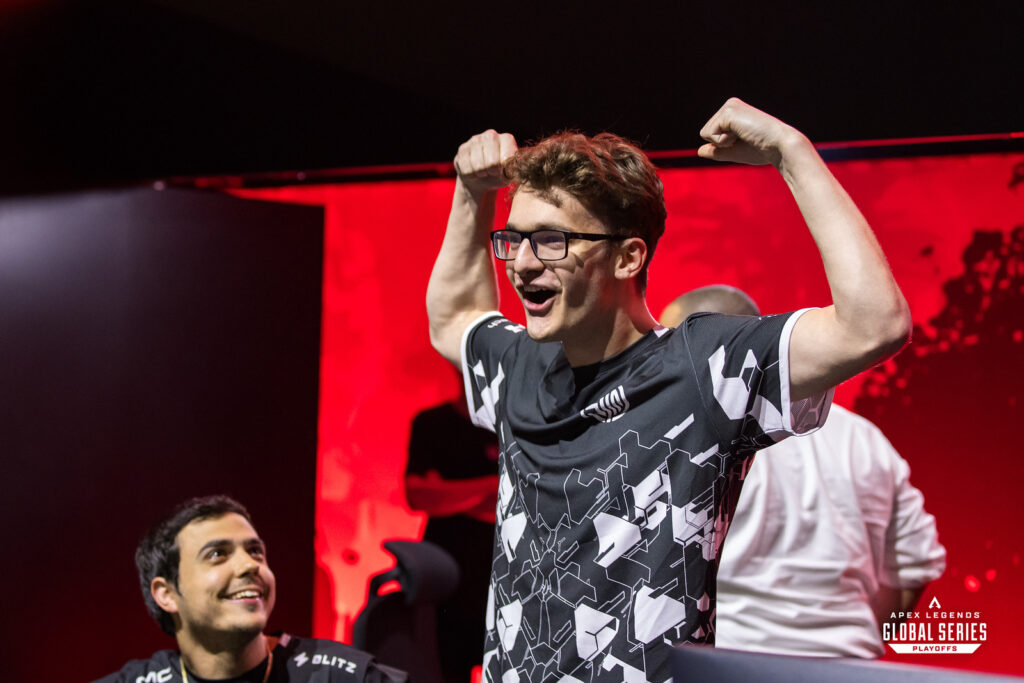
Their first award winner, Evan “Verhulst” Verhulst, is well known within the Apex Legends community for supporting every teammate, regardless of ability, rank, or competition. Whether he is participating in Pro-Am (professional’s competing with amateurs) tournaments or the Apex Legends professional league, he focuses on clear, effective, a productive communication to uplift those around him.
Highlighting and rewarding players such as Verhulst helps to promote the best forms of in-game conduct, exemplifying to children and adults alike how a great attitude can help you reach the top of your game.
How can you help your child maintain positive in-game communication and relationships?
Parents also play a crucial role in encouraging safe, positive interactions online. Although this may seem like a daunting task, there are simple steps you can take to help your child develop good in-game and online behaviours.
- Check which games have parental controls! Games such as Roblox have features such as chat restrictions and parent pins, helping manage which content and features children can access.
- When your child first starts playing a game, sit with them and find out where they can report inappropriate players or comments. This way, both of you know how this function works, as its placement can vary from game to game. If you are in doubt, Google is your friend! Many others will have searched for the same function. By sitting down and going through the process with them, they will feel more confident in reporting a player if they need to.
- Encourage play with friends! Most cooperative or multiplayer games have an option to form a team or enter a game lobby with your friends. Find out the username of a friend who your child knows, and help them to connect their accounts. Most games have an easy friend feature so they can regularly join the game together.
- Where possible, visit gaming arenas such as New Meta and attend programs such as the New Meta Academy. Being able to interact with other gamers in person provides a helpful reminder that we are all people behind our screens!
- If you can, hop into a game and learn some of the features yourself! Joining your child’s favourite game with them can be a fantastic way to encourage positive communication and connect with their passion. Fortnite, one of the most popular Battle Royale games, has relatively simple controls and is easy to learn. Why not give gaming a try?
Mental health charities for gamers
If anyone is struggling with their mental health, particularly if they are uncomfortable with interactions that have happened while gaming, there are several mental health charities that are set up by and run for gamers.
Safe in our World is a mental health charity dedicated to providing a wide range of resources for gamers struggling with their wellbeing. Their website features information about self-advocacy, anger management, depression, anxiety, sleep help, loneliness, and more. You can also access helplines directly from their site, sorted by region. Alongside their website, Safe in our World have a podcast where they discuss mental health in video games and the wider gaming industry.
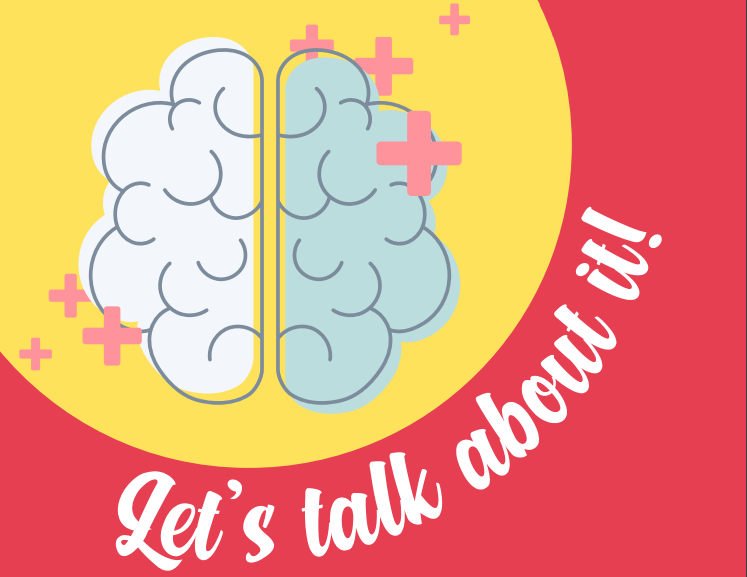
TakeThis is a gamer-led mental health charity that partners with industry leaders, mental health professionals, and researchers to improve approaches to mental health within gaming communities. Their website features a helpline finding feature where people can find confidential advice lines in their region. Alongside this, they regularly post blog and article updates on their site with news and updated guidance relating to community mental wellbeing.
The Twisten Foundation was established in memory of Czech esports professional Karel “Twisten” Ašenbrener by his family after he took his own life in June 2023 after struggling with his mental health. The foundation works to improve mental health support for teenagers in gaming, raising awareness about why increased support for young people is needed and researching how to best support them.
Knowing how to navigate an increasingly digital world can be daunting, but there are always people within the gaming community who are willing to guide you.
If you are concerned about you or your child’s online interactions and want more support, you can seek further guidance from the organisations above, or visit Play New Meta and speak to our staff – they will be more than happy to help!

